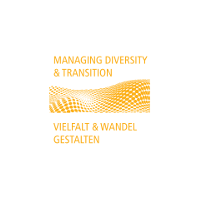To Err Night - Science (in German and / or English)
Friday, 14.06.2024, 18:30-21:00
(sufficient amount of active contributions required)
It is often easy to say that we all make mistakes or fail from time to time, but it is not always so easy to accept. Success often seems important and the (perceived) pressure increases: The job, money, reputation, personal future...
But what happens if a mistake occurs in your own project or if it even fails completely? We sometimes react quite irrationally. Shame, anger or fear often lead us to apportion blame or to hide mistakes, conceal failed projects, bluff, at worst cheat, fall ill or give up.
All of this affects both the quality of our work and the lives of the people concerned. What to do?
The theory says: First step - talk openly about mistakes!
What is an open error culture?
An open error culture promotes early and open communication about errors, which makes it possible to recognize errors more quickly and learn constructively from mistakes:
Learning from mistakes and failure instead of denying them - how can we transfer this to science and (doctoral) projects?
With To Err Night - Science, we would like to promote an open culture of error in science, as countless examples show that successful ideas can emerge from seemingly failed projects.
We would like to try it out with you in practice: Let's not conceal or even cover up mistakes, but talk about mistakes, accept mistakes and learn from them.
What are our plans for To Err Night Science?
Similar to the Fuckup Nights, where founders talk publicly about their mistakes and failures, we would also like to encourage scientists to be open about their failures with the To Err Night - Science variant and thus establish a constructive error culture:
The best way to do this is through real experiences:
Have you ever experienced how a mistake almost caused you to fail an important (scientific) project, have you ever worked on something for months or years that didn't work out after all? Looking back on a project that went wrong, do you sometimes think: "I wish I had known all this back then!"?
Then we would be delighted if you could share such experiences with the group on June 14: What did you have in mind, what went wrong, what happened next with your project and, above all, what did you learn about your own or other people's mistakes, the treachery of the object, the coincidence factor, and, and, and...?
Following a brief introduction to the culture of error, its consequences and more or less prominent examples of error and failure in science, we would like to discuss with you your personal experiences with (apparent) failure and how you deal with it:
While all people make mistakes, not all participants* will be able to spontaneously present something here.
The To Err Night would like to offer space for up to three experience reports. Ideally, these should last around 15 minutes and provide an opportunity for questions from the audience for around 10 minutes.
If you are interested in presenting a small (or large) failed project, we would be pleased to hear from you in advance.
Please contact us by e-mail at: Graduiertenschule-HFuni-koeln.de for further information.
Program outline:
18:30-19:00 Jutta Stahl: You don't talk about mistakes - or do you? Open error culture in science
19:00-20:30 Reports from participants on personal experiences with (apparent) failure and how to deal with it
20:30-21:00 Final discussion
The speaker:
Prof. Dr. Jutta Stahl has been Professor of Differential Psychology and Psychological Diagnostics at the University of Cologne since 2009. She has been researching the neurophysiological foundations of error processing and differences in dealing with errors for many years. Perfectionism - with its good and bad sides - is a key area of research. As Vice Dean of the Faculty of Human Sciences for Academic Careers and Equal Opportunities, she is currently also the spokesperson for the Graduate School. She not only has theoretical expertise on the subject of making mistakes, but has also had the opportunity to gain a wide range of practical experience with this exciting topic.
Registration:
For your own contribution: via the registration form
As part of the audience: by e-mail to Graduate School-HF[at]uni-koeln.de
Venue:
HF main building, ground floor
Meeting room of the dean's office (room 0.105)
Gronewaldstraße 2, 50931 Cologne
